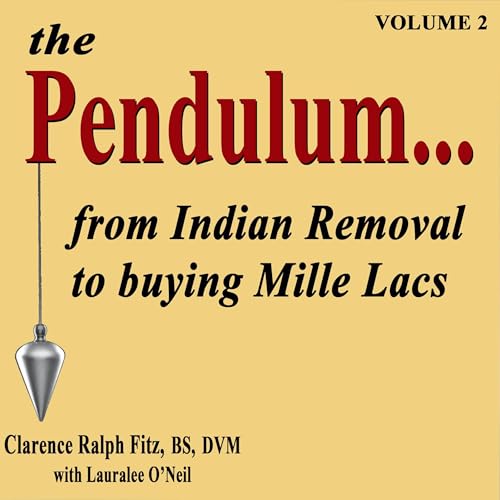
The Pendulum
From Indian Removal to Buying Mille Lacs
Failed to add items
Add to basket failed.
Add to Wish List failed.
Remove from Wish List failed.
Follow podcast failed
Unfollow podcast failed
Buy Now for $27.79
-
Narrated by:
-
Bill Lewis
About this listen
"SECTION 7: The Secretary of the Interior is hereby authorized to proclaim new Indian reservations on lands acquired pursuant to any authority conferred by this Act, or to add such lands to existing reservations."—The Indian Reorganization Act, June 18, 1934
This narrative starts with Andrew Jackson before the original colonies had declared independence from Great Britain, continues through Jackson’s brilliant military career and through his becoming the 7th president of the United States. It continues through his promotion of the Indian Removal Act and the resulting tumultuous Trail of Tears.
The book then skips over the period covered in the book, and the Mille Lacs who have no Reservation by this same author, and examines the lives of the principal actors who were responsible for the Indian Reorganization Act and the Indian New Deal in the FDR administration.
It then delves into the passage of and the effects of the Indian Reorganization Act on Indian tribes across the country, but specifically on the band of Chippewa who no longer had a reservation on the south shore of Mille Lacs Lake in central Minnesota who refused to remove as they had agreed to do, and explains how the area was purchased with taxpayer money for these homeless Mille Lacs Indians.
©2020 Clarence Ralph Fitz (P)2025 Clarence Ralph Fitz

